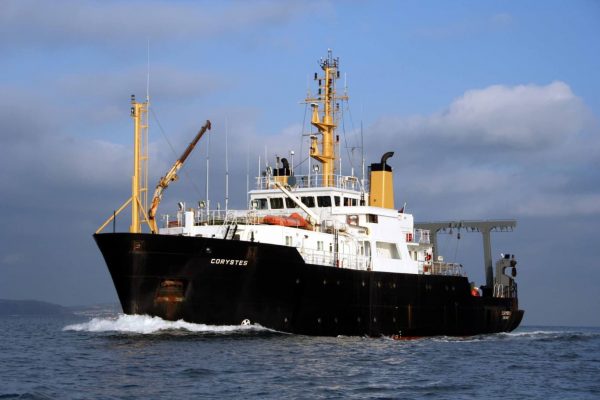What Are Cadetships In the Merchant Navy?
A maritime cadetship in the merchant navy is a training program for aspiring maritime officers. Cadetships typically include onboard training on commercial ships and shore-based studies in maritime-related subjects such as navigation, safety, and environmental protection.
A cadetship aims to prepare individuals for joining the merchant navy for careers as deck, electro-technical or engineering officers in the merchant navy. Shipping companies or educational institutions may offer cadetships.
Cadetship Disciplines
There are several types of cadetships in the merchant navy, including; Deck Officer, Engineering Officer, and Electro-technical Officer.
Deck Cadetship
Deck Cadetships are designed to prepare individuals for a career as a deck officer in the merchant navy. During the program, cadets receive training in navigation, deck operations, and safety procedures, both on-board commercial ships and in shore-based studies. The goal of a Deck Cadetship is to develop the skills and knowledge required to become a licensed deck officer and take on leadership roles on ships.
Engineering Cadetship
Engineering Cadetships are designed for individuals who aspire to become engineering officers in the merchant navy. The program focuses on developing knowledge and skills in marine engineering, propulsion systems, and safety procedures. Cadets receive onboard training on commercial ships and shore-based studies in engineering-related subjects.
Electro-Technical Cadetship
Electro-Technical Cadetships are a type of Engineering Cadetship that focuses specifically on ships’ electrical and electronic systems. The program covers topics such as electrical power generation, distribution, and control, as well as communication and navigation systems.
Who Can Apply?
These requirements may vary depending on the specific cadetship program and the country where it is offered. Typically, individuals who meet the following criteria can apply for a cadetship in the merchant navy:
Age: Must be at least 18 years old and not more than 25 years old.
Education: Must have completed secondary education with good mathematics, physics, and English grades. Some cadetships may require a higher level of education, such as a bachelor’s degree.
Physical fitness: Must pass a medical examination and meet the fitness standards set by the maritime authorities.
Nationality: May be required to have a specific nationality, such as a citizen of the country where the cadetship is offered.
Other requirements: Some cadetships may also require passing a written test or an interview.
Applying For A Cadetship In The Merchant Navy
Here are some ways to find a cadetship in the merchant navy:
Shipping companies: Many shipping companies offer their own cadetship programs for aspiring maritime officers. You can search for these programs on the websites of well-known shipping companies.
Maritime academies and educational institutions: Maritime academies and educational institutions may offer cadetships in partnership with shipping companies. You can search for these programs on the websites of maritime academies and educational institutions.
Job portals: Many job portals, such as monster.com and indeed.com, have listings for cadetships in the merchant navy.
Maritime organisations: Some maritime organisations, such as the International Maritime Organization, may have information about shipping companies and educational institutions offering cadetships.
Government websites: Governments may also offer cadetships in the merchant navy. You can search for these programs on the websites of relevant government agencies.
Difference Between a Merchant Navy Apprenticeship and a Merchant Navy Apprenticeship
A merchant navy cadetship and a merchant navy apprenticeship are both training programs for aspiring maritime professionals, but there are some differences between the two.
A merchant navy cadetship is a comprehensive training program that typically lasts several years and combines on-board training on commercial ships with shore-based studies in maritime-related subjects. The goal of a cadetship is to prepare individuals for careers as deck, electro-technical, or engineering officers in the merchant navy. Cadetships are often offered by shipping companies or educational institutions and are designed to provide a well-rounded education in all aspects of maritime operations.
A merchant navy apprenticeship, on the other hand, is a more focused and practical training program that emphasizes on-the-job training and practical experience. Apprenticeships are typically shorter in duration and are offered by shipping companies as a means of training individuals in a specific trade or skill, such as welding or electrical work. The goal of a merchant navy apprenticeship is to provide hands-on training in a specific trade or skill, rather than to prepare individuals for a broader role in the merchant navy.
In conclusion, while both merchant navy cadetships and apprenticeships provide valuable training and experience for aspiring maritime professionals, the focus of each program is different. Cadetships provide a comprehensive education in all aspects of maritime operations, while apprenticeships provide focused training in a specific trade or skill.
FAQ: Would I Be A Good Fit?
Here are some skills and attributes that are typically desirable for an individual seeking a cadetship in the merchant navy:
Leadership skills: Maritime officers are responsible for leading a team of crew members and ensuring the safety of the ship and its passengers. A candidate with strong leadership skills is likely to be more successful in this role.
Communication skills: Good communication skills are important for giving and receiving instructions and working effectively with a team of people from diverse backgrounds.
Problem-solving skills: Candidates with strong problem-solving skills are well-suited for a career in the merchant navy as they will need to be able to find solutions to unexpected issues that arise on ships.
Adaptability: The working environment on a ship can be challenging, with long hours and limited personal space. Candidates who are adaptable and able to work effectively in these conditions are more likely to succeed in a maritime career.
Attention to detail: The safety of the ship and its passengers depends on the crew’s attention to detail and ability to follow procedures accurately. A candidate with strong attention to detail is likely to be more successful in this role.
Physical fitness: The physical demands of working on a ship can be demanding, and candidates must be physically fit to meet these demands.
Technical skills: A background in science, engineering, or mathematics can be helpful for individuals seeking a cadetship in the merchant navy, particularly for engineering or electro-technical cadetships.




